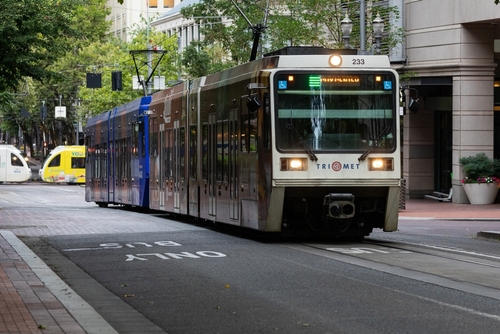
The Oregon Transit Association and TriMet said Thursday transit operations could see cuts if the state doesn’t increase funding.
TriMet provides bus, MAX light rail, WES commuter rail and LIFT paratransit services across Multnomah, Washington and Clackamas counties in Oregon. The organization joined OTA in requesting Oregon legislators increase funding for public transit in the state’s 2025 transportation package.
“We appreciate the efforts of the Oregon Legislature to assemble a package that balances funding for all modes of transportation. However, the amount of funding for public transit currently being proposed is not enough to avoid service cuts that will leave tens of thousands of Oregonians stranded without the transportation they depend on, including in TriMet’s tri-county service district,” TriMet officials said.
OTA is calling for a phased increase of 0.4 percent in the Statewide Transportation Improvement Fund (STIF) employee payroll tax over the next eight years. Without the increase TriMet said cuts to transit service would be necessary.
“Under the current proposed 0.08 percent increase, TriMet would need to begin cutting service by July 1, 2027,” TriMet said. “We would need to cut 15 percent of service in 2027, with an additional 5 percent cut every two years after that, until our operating budget deficit is resolved.”
TriMet said it has seen operating costs increase by 53 percent per vehicle from 2019 to 2024, mostly due to inflation. Additionally, the transit agency said it has had to triple its safety budget to address community-wide public safety challenges.
“TriMet has been operating on reduced revenues since the COVID-19 pandemic and is currently facing a $74.4 million deficit for the fiscal year ahead, which begins July 1, 2025. As our deficit continues to grow year-to-year, we’re using our reserves to avoid reducing services, and we’re making meaningful cuts to our discretionary spending and implementing changes to right-size our budget,” the agency said.
However, changes brought about by the pandemic and systemic changes in commute patterns and remote work are forcing the agency toward a fiscal cliff in 2031, the agency said.